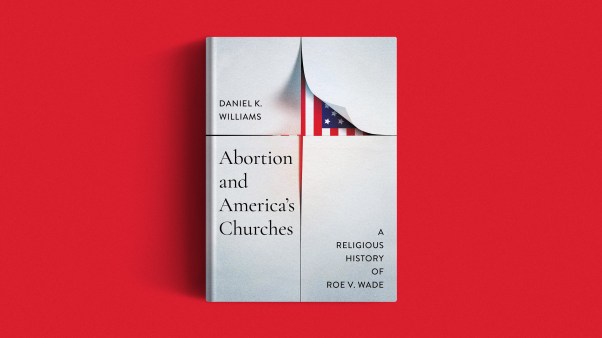CHRISTIANITY TODAY
NEWS
Menno Simons shook off attentions of the painted woman, turned from the Roman church, and set his face toward the barns and hedges where he would minister to Anabaptists, who were persecuted by Romanist and Reformer alike.
Some 4,000 Mennonites, heirs of the tragic story of the “Reformation’s left wing,” sat watching this and other portions of their history re-enacted last month in this, the 400th anniversary (by some datings) of the death of Menno, the converted Dutch priest who was to lend his name to the “rebaptizers.” The pageant had been written for the centennial of the 52,014-member General Conference Mennonite Church, meeting for its 35th triennial conference at Blulffton (Ohio) College. Five days later another Mennonite college town, nearby Goshen, Indiana, played host to the other of the two largest Mennonite bodies—the 83,204-member Mennonite Church (often called “Old Mennonite”), assembled for its 31st biennial general conference.
Bluffton, in contrast to Goshen, saw several vigorous debates—on such matters as capital punishment and biblical inspiration. Much discussion but less debate preceded adoption of a statement calling for a permanent U.S. ban on nuclear bomb tests and equating them, along with war, with sin, inasmuch as “they belong to the war preparations scheme.”
One speaker pointed out that manufacture of rifles could as well be included on such grounds. For Mennonites are generally pacifists, and as one of the historic peace churches, they suffer from the iniquitous, but common, identification of pacifism with modernism. Mennonites have largely remained evangelical and express weariness with the pragmatic drifting of liberal social ethics toward and away from pacifism, contingent upon political currents of the day. In contrast, they plead for a biblically and theologically based doctrine of nonresistance. Generally they desire a more “pacifistic pacifism” than that of secular pacifists who seek physically to interfere with government military preparation.
The large Mennonite bodies belong to no interdenominational council of churches, though they have studied the possibility. It is hard to find councils which couple conservative theology with a pacifist ethic. Yet Mennonites are not fond of socialist tendencies of liberal ethics, usually being loathe to see big government intrusion into the area of the church’s social responsibility. There is no wholehearted endorsement of the labor union movement, due in part to its failure to practice nonresistance. One Mennonite workers’ association, for example, regards arbitration as the final resort and renounces the strike.
Not surprising was the introduction at the Bluffton meeting of a resolution condemning capital punishment. What was surprising was the amount of opposition it received. Debate revealed sharply divergent views as to exactly what the Anabaptist forefathers taught on this subject. Those favoring the resolution spoke of death as removing the possibility for conversion. Their opponents cited Moses, Jesus, Peter, Paul and the Anabaptists in support of capital punishment. (Mennonites and other peace churches have been accused of slighting the Old Testament and Epistles in favor of the Gospels, particularly the Sermon on the Mount.) Delegates finally voted to refer the resolution back to committee.
The almost all-white church also voted to request each congregation to welcome members of all races. Asking the question, “Have we wrapped around ourselves a robe of self-righteousness, afraid lest a free Christian brotherhood of love dilute our Mennonite customs and culture?” delegates asserted the relevance of the “peace witness” to racial warring.
From the floor came a resolution calling for a centennial reaffirmation of faith in the Scriptures as infallible and inerrant in their autographs. After keen debate on both sides of the question, delegates voted to authorize a study conference to examine the matter. Capable Erland Waltner, re-elected as general conference president, took the occasion to reassert the historic conference stand on biblical infallibility.
In Goshen, such matters constituted the biggest single issue of the general conference of the “Old Mennonites.” Conference theme was “The Word of God to the Church of Today,” and delegates heard seven major addresses on this topic in two days. Key address was that of Dean Harold S. Bender, church historian at Goshen College Biblical Seminary, on “Biblical Revelation and Inspiration.” Displaying sensitivity to neo-orthodox conceptions of revelation, Bender said revelational activity included “acts, interpretation, and writing.” Defending propositional revelation, he described the Bible as “more than just a record of revelation”: it is “a necessary integral part of revelation.” Mennonites are a “biblicist church,” not a “theologians’ church.” If they lose the authority of the Bible, the “only real authority,” they “are lost” and will “disappear in the stream of history.” He defended the concepts of verbal and plenary inspiration when properly distinguished from mechanical and dictation views and from the claim that all Scripture is of equal value. “Inspiration is not based on inerrancy of fact.” Bender concluded by warning against modernism, liberalism, neo-orthodoxy, and all who “deny the Bible as the authoritative norm,” as well as cautioning against the extreme varieties of Calvinism, fundamentalism, and dispensationalism, which “impose theories upon the Bible without adequate biblical foundations.” (Mennonites often criticize dispensationalists: the tendency to relegate the relevance of the Sermon on the Mount to the millenium would obviously be unpopular; further, many Mennonites are amillenialists.)
One conference leader remarked that Mennonites have only talked about verbal inspiration in recent years, the Bible “not giving a precise description of inspiration.” Mennonites draw back, he indicated, from the doctrine of inerrancy of the autographs, for this “tends to get too theological” rather than biblical. “We are not strong on theology” (Menno Simons did not hold a purely orthodox Christology), “though there are times when we must clarify our differences with neo-orthodoxy and hyper-fundamentalism. We are Arminian and our practical emphasis is akin to Wesleyanism.”
A resolutions committee presented a statement on the Scriptures, describing them as “fully trustworthy and authoritative.” Criticisms were heard concerning lack of affirmation of propositional revelation and the historical accuracy of the Bible, though the statement was adopted unanimously subject to certain revisions along the suggested lines.
The conference also voted unanimously to send a letter to President Eisenhower asking him to do all in his power “to secure the abolition, first, of nuclear tests and then of all present stocks of weapons of massive retaliation.” “We would prefer facing the risk of possible totalitarian domination to assuming responsibility for a nuclear holocaust bringing certain annihilation of whole peoples.…” Mennonites have practiced migrating from totalitarian regimes in the past. This time, they realize, there would be no place to go.
Sending such a letter is a departure from the ancient Mennonite custom of having nothing to do with the State. In Germany they were called “the quiet people.” They love freedom but will not fight to defend it. They refuse to differentiate between a corporate ethic and Jesus’ commandments to individual followers. Said one eminent churchman, “We believe in the function of government, and we never say, as the Quakers, that a country should have no army or police. But we believe a Christian should not serve in any of these fields. This paradox is the most difficult thing we face—our point of greatest vulnerability. Yet we must obey Christ.”
But Mennonites throw their energies into an extensive relief program. Their record in this area is outstanding. Goshen delegates voted “support in principle” of measures before Congress which “would make greater use of agricultural surpluses in feeding and clothing the hungry.…” Mennonite young men classified as conscientious objectors may spend their two years in alternative service “for the promotion of the national welfare both at home and abroad.” Most Mennonite bodies cooperate in the Mennonite Central Committee which coordinates relief and emergency services, refugee rehabilitation, and peace activities.
Apart from this organization, Mennonite groups (some 13 in the U.S.) tend to be exclusivist at home and on the foreign mission field. But despite objections, the Mennonite Church and the General Conference Mennonite Church have in recent years been cooperating in publication projects such as the newly completed Mennonite Encyclopedia and graded Sunday school materials, and also in theological education. Goshen College Biblical Seminary and neighboring Elkhart’s Mennonite Biblical Seminary (both housed in handsome new buildings) now cooperate under the Associated Mennonite Biblical Seminaries’ program. Traditional Mennonite disapproval of a paid and trained ministry is weakening as are anti-theological sentiments. However, emphasis upon pacifism as the primary Mennonite distinctive and the tendency to read sanctification in terms of nonresistance pose the recognized threat of ethics assuming primacy over theology on the road to moralism. Such an ethical emphasis, said one leader, tends to be schismatic as well.
“Old Mennonites” and General Conference Mennonites are said to have no real theological differences. The latter group is reportedly enjoying a swing back from an incursion of liberalism in the 1920s and 1930s. But there is practically no talk of merger. Polities differ and the former body maintains certain distinctions in dress and customs (e.g. foot washing and the holy kiss) and practices stricter discipline over members’ personal habits. (“Old Mennonites” are not to be confused with their Amish cousins, some of whom are regarded by Mennonites as holding a religion of tradition and externals and as in need of evangelization.)
Some point to strict Mennonite ethical standards as impeding growth. The 156,000 U.S. Mennonites constitute roughly half the world-wide number. Others point to heavy persecutions which deprived the scattered flocks of their leadership. Said one spokesman, “Until about 1900, we had lost our missionary passion. Then we discovered the persecutions were over.” (Swiss Mennonites are even yet reluctant to take a church census for fear some hostile government might one day use it against them.)
The population drift to the cities is disrupting the closely knit Mennonite rural fellowship (members in areas where there is not a Mennonite church are called “dispersed” or “displaced”). Some call for a return of all Mennonites from the cities to their own communities to preserve their way of life. But their fellow evangelicals in other communions are glad to see many Mennonites facing up to their evangelistic responsibilities in the cities of their “dispersion.” In the past, Mennonites have migrated from one country to another simply to maintain the practice of educating their children in a mother tongue. A healthier and more biblical migration is into the highways and byways of the land of their residence with their sturdy evangelical witness.
Menno’s heirs no longer move untouched by the theological and ecclesiastical currents of non-Mennonite Christendom. But they steer their own middle course, seeking still to be true to the lights of their fathers.
People: Words And Events
Deaths: Dr. James S. West, 84, Baptist minister who conducted the funeral of President Warren Harding in 1923, in Tampa, Florida … Dr. Arthur C. Boyce, 75, retired Presbyterian missionary educator to Iran, in Duarte, California.
Elections: As president of the International Convention of Christian Churches, Dr. Loren E. Lair … as general superintendent of the Assemblies of God, the Rev. Thomas F. Zimmerman.
Appointments: As editor of The Presbyterian Journal, Dr. G. Aiken Taylor … as executive secretary of the National Association of Free Will Baptists, the Rev.B.A. Melvin.
Protestant Panorama
• Wesley Methodist Church in Highwood, Illinois, has merged with the Bethany Evangelical United Brethren Church in Highland Park. The congregation reportedly plans a loyalty to both the Methodist and Evangelical United Brethren churches.
• Union Theological Seminary in Richmond, Virginia, operated by the Presbyterian Church in the U. S. (Southern), hopes to be the first theological seminary in the nation to go into commercial broadcasting. The school, which now has a non-profit, non-commercial educational FM station with a power of 10,000 watts, has asked the Federal Communications Commission to change its license to commerical and to increase power to 16,100 watts.
• Crescent Hill Baptist Church in Louisville, Kentucky, which maintains a nine-hole miniature golf course on the third floor of its education building, now plans to install a driving range in the gymnasium.
• The Rev. Rice Alforth Harris, 72-year-old Anglican priest who is admittedly “pro-Roman,” was dismissed from his London church where he had served for 33 years for using Roman Catholic rites in parish services.
• Representatives of seven Lutheran bodies, at a meeting in Winnipeg this month, voted to suspend temporarily exploratory conversations looking toward a single Lutheran church for the Dominion. They decided upon the delay pending the outcome of current proposals in the United States.
• Industry’s two million “problem drinkers” cause a loss of 36,000,000 man-days and $1,000,000,000 annually, according to an estimate released this month by the Methodist Board of Temperance.
• Mormons plan to erect a $ 100,000 shrine to their founder, Joseph Smith, in Liberty, Missouri.
• President Kubitschek of Brazil attended a special service of thanksgiving last month in the First Presbyterian Church of Rio de Janeiro. It reportedly marked the first time in Brazilian history that a chief executive attended a Protestant worship service. Brazilian Presbyterians are commemorating a centennial.
• The Pittsburgh Catholic, official diocesan weekly, suggested possible taxation of large private universities and foundations as alternatives to a proposal that churches eventually give up their tax-free status. The weekly was commenting on an article by Dr. Eugene Carson Blake, stated clerk of the United Presbyterian Church in the U. S. A., which appeared in the August 3 issue of CHRISTIANITY TODAY.
• Theodosios VI of Damascus, head of the Syrian Orthodox Church of Antioch and All the Orient, held conversations this month with leaders of the Greek Orthodox Church aimed at promoting closer cooperation between the two Eastern Orthodox bodies.
• A teacher placement agency to serve evangelical higher education has been organized with headquarters at Fort Wayne, Indiana (Box 2512). Dean John H. Fadenrecht of Wheaton College is president of the group, known as “Evangelical Teacher Placement Agency.” Dr. S. A. Witmer is director.
• Improved relations between the Italian government and non-Catholics were reported as the year’s highlight to delegates attending the annual Synod of the Waldensian Church at Torre pellice, Italy, this month.
• A study of Roman Catholicism won for Professor Jaroslav Pelikan, 35-year-old Lutheran minister who teaches at the University of Chicago, a $12,500 prize in book-writing competition sponsored by Abingdon Press.
• Ground was broken this month for a new YMCA building in Nazareth, where Jesus Christ spent his youth.
• September 30 is the publication date for the Revised Standard Version Concordance Reference Bible, which includes with its RSV text 75,000 center column references, 12 maps, and a 192-page abridged concordance.
The Ninth Primate
In an Alberta police barracks was born 56 years ago the man who this month became ninth Primate of the Anglican Church of Canada, Bishop Howard Hewlett Clark of Edmonton.
Clark, son of a Royal Canadian Mounted Policeman, was elected spiritual leader of some 1,300,000 Canadian Anglicans while riding what Religious News Service described as a “wave of tremendous personal popularity” after an eloquent “low pressure” presentation of the first thoroughly Canadian revision of the church’s Book of Common Prayer.
Clark’s presentation—and his election—came during the triennial General Synod of Canadian Anglicans held at Ste. Anne de Bellevue, Quebec. He headed a committee responsible for the revision.
The 330 delegates quickly approved the revision, which now goes into permissive use throughout the church until the next General Synod in 1962 gives final and absolute approval.
Reportedly, the revision does not change Anglican doctrine, but is said to eliminate archaisms, incorrect translations and words whose meaning has changed. It eliminates the word “obey” from the marriage service.
At a press conference following his election, Clark commented that “in some ways, the new prayer book is the new primate.”
He gave strong approval to discussions leading toward possible union between Anglicans and the United Church of Canada and said he would be praying for the “success” of the Ecumenical Council to be convened by Pope John XXIII.
“I don’t know what His Holiness has in mind,” the primate said, “but I shall pray for him to know the will of God.”
In a resolution, delegates endorsed an invitation to the Presbyterian Church in Canada to consider renewing conversations between the two groups looking toward eventual union.
In another action, the synod decided that “once a priest always a priest” and amended its canon law on the abandonment or relinquishment of the ministry to read “abandonment or relinquishment of the exercise of it.”
The synod also changed another canon law to permit a deaconess to retain her status after marriage.
Bishop G. P. Gower reported that confirmations in the church last year hit the highest total ever recorded—33,963, but that marriages showed a decline of 22.3 per cent to 11,574.
“Is the church wedding going out of favor among our people?” he asked. “Are mixed marriages taking their tolls of weak Anglicans?”
Assemblies’ Advance
Assemblies of God established an average of six new churches every week during the past five years.
According to a report released at its 28th biennial General Council, the world’s largest Pentecostal body now has more than 1,113,000 members in 71 countries, including 505,500 in the United States in 9,000 congregations.
Some 12,000 delegates were on hand for the council, held last month in San Antonio, Texas.
They voted to establish a chaplaincy commission. For the past eight years the church has worked through the chaplaincy commission of the National Association of Evangelicals. Eighteen Assemblies of God chaplains are currently on active duty with the U. S. armed forces.
Nightly public services in San Antonio’s Municipal Auditorium highlighted spiritual aspects of the council. Hundreds of persons professed salvation.
Delegates also adopted a resolution creating a special committee to study the assemblies’ fundamental beliefs “with possible amplification in view.”
An appeal was made to local churches and pastors to make greater use of the denomination’s official name and emblem.
Assemblies of God sponsor a weekly half-hour evangelistic radio program, “Revivaltime,” heard over some 376 stations. The denomination has its headquarters in Springfield, Missouri.
Seventh-Day Baptists
More than 700 delegates gathered at Salem, West Virginia, last month for the 147th meeting of the Seventh-day Baptist General Conference. They called for continued “vigilance and opposition to any legislation which specifies a particular day for rest and worship.”
Founded at Newport, Rhode Island, in 1671, the denomination currently has some 6,000 members in 60 congregations. Its headquarters are in Plainfield, New Jersey. Seventh-day Baptists observe Saturday as their Sabbath.
Men Of The Chapel
Protestant Men of the Chapel, newly-organized association for service men in Korea, held its first retreat for members of the United Nations Command in Seoul last month.
The Korea group is a chapter of the Protestant Men of the Chapel organization founded in Heidelberg in 1953.
‘Theological Discussions’
Ten representatives of the Roman Catholic Church and an equal number from Eastern Orthodox churches will convene in Venice, Italy, next year for “theological discussions of interest to both churches,” according to a Vatican Radio broadcast reported by Religious News Service.
Student Inauguration
A dedication service in Oberlin, Ohio, marked the inauguration of the interdenominational National Student Christian Federation this month.
Merging to form the federation were the United Student Christian Council, the Student Volunteer Movement and the Iiiterseminary Movement.
Chruch And State
Ncc And Peace
More than 100 top-ranking denominational officials assembled in Washington September 9 in behalf of the National Council of Churches’ year-long “Nationwide Program for Peace.”
First stop was the White House and a meeting with President Eisenhower.
“We would like you to know,” said Dr. Edwin T. Dahlberg, NCC president, “that during the year from now to next summer the members of our churches will be making a special study of the issues which face our nation and the world, through a Nationwide Program of Education for Peace, so that they may act with increasing responsibility as Christian citizens.”
In a 1,000-word statement in reply, Eisenhower said he was appreciative.
The White House gathering, according to Dahlberg, was “the largest and most representative” body of Protestant churchmen ever to call on a President of the United States.
From there the church dignitaries went to a Mayflower Hotel luncheon to hear speeches by Democratic Senator Hubert H. Humphrey of Minnesota, Dr. O. Frederick Nolde, head of the Commission of the Churches on International Affairs, and Dr. Kenneth L. Maxwell, executive director of the Department of International Affairs. An “off-the-record” briefing at the State Department followed.
The NCC’s peace program consists largely of seminars across the country, plus literature distribution. Ostensibly a “study” program, its application involves churches in political affairs historically considered outside the religious province under church-state separation principles.
The peace program is being conducted by the NCC’s Department of International Affairs, which last fall sponsored the Fifth World Order Study Conference in Cleveland. The conference’s conclusions, sharply critical of U. S. foreign policy, are being distributed as part of the literature of the peace program.
With Khrushchev
David E. Kucharsky, News Editor of CHRISTIANITY TODAY, was one of 250 correspondents accredited to tour the United States with Soviet Premier Nikita Khrushchev.
Special firsthand reports are scheduled for the October 12 issue of CHRISTIANITY TODAY, which will begin the magazine’s fourth year of publication.
Mass Evangelism
Indianapolis Crusade
Evangelist Billy Graham’s next major crusade is scheduled to begin in Indianapolis October 6. Meetings will be held at the Indiana
State Fairgrounds
Coliseum, which seats 13,000. The crusade, which was taking on aspects of a state-wide effort, was slated to run through November 1.
About 100 churches were participating in a two-week pre-crusade visitation program. Cottage prayer meetings began September 1. Almost 2,000 attended training classes during the first week in five different locations.
Graham’s plans for Indianapolis came after an eight-day crusade in Wheaton, Illinois.
Earlier in the month, he held a two-meeting week-end series in Little Rock, Arkansas, where a total of some 1,400 recorded decisions for Christ. The two meetings drew an aggregate of almost 50,000 persons. While in Little Rock, Graham visited the jail where four men accused of setting off a series of Labor Day explosions were being held.
Headquarters Dedicated
The National Sunday School Association dedicated its recently purchased four-story headquarters building in downtown Chicago, September 13. Rev. Bert Webb, NSSA president delivered the dedicatory address. The Association is an interdenominational agency serving in the field of Christian education and is related to the National Association of Evangelicals.










